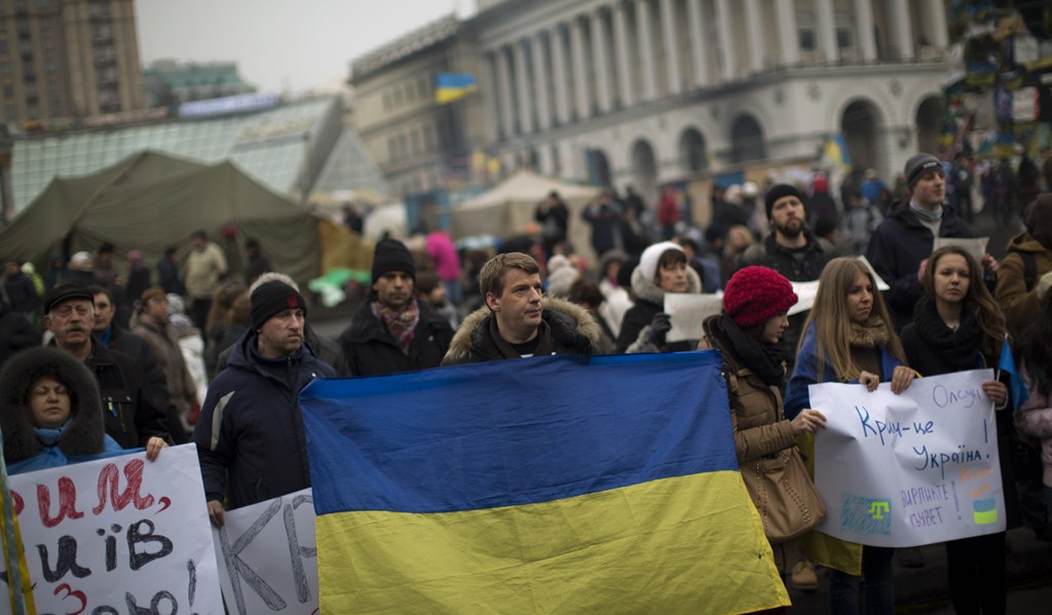The people of Ukraine both urgently need and richly deserve the free world’s full support in their fight to repel Russian occupation.With the relative power of the world’s democracies and autocracies hanging in the balance, there is no greater priority for the European Union, its member nations, the United Kingdom, or the United States.
But Ukrainians are hardly alone in their need for international solidarity in the fight against tyranny. If anything, the escalating crisis in Eastern Europe serves as a reminder that the world urgently needs global strategies to prevent the ascendance of dictators and to counter threats emanating from rogue regimes. That the invasion of Ukraine has resulted in troubling expressions of support by Moscow’s allies– and deafening silence by others in Russia’s orbit that remained unaligned – highlights the dangers that may yet emerge from a global axis intent on striking a blow to democratic values.
For the West, Putin’s war of aggression could have one of two effects. It could distract attention from other recent demonstrations of authoritarian power, or it could encourage policymakers to see rogue regimes – whether in North Korea, China, or Iran – as part of an overarching threat to the democratic world order.
Make no mistake: Pyongyang, Beijing, and Tehran recognize the convergence of their interests and will seek to leverage the situation in Ukraine to their own advantage. Several Iranian officials have already spoken publicly in defense of Moscow, no doubt hoping that Russian negotiators in Vienna will strengthen their support for Tehran’s ultimatums regarding re-implementation of the 2015 Iran nuclear deal.
Since returning to the Vienna talks last November, the Iranian regime has rejected all efforts at compromise while insisting that the United States lift sanctions. Over time, it became clear that this demand extended to sanctions that were imposed not only on the nuclear program itself, but also on Iran’s human rights abuses and terrorist activity.
Recommended
Then, last weekend, after returning to Tehran to consult with higher authorities, Iran’s top nuclear negotiator, Ali Bagheri-Kani, began pushing the further demand that an international investigation into Iran’s nuclear weapons program be closed. Russia’s walk on the wild side, it seems, prompted Iran’s theocratic regime to adopt an even more belligerent posture with its democratic adversaries. Those adversaries must now think carefully about how they intend to respond to that, even as they also manage their support of the Resistance movement in Ukraine.
It remains unclear whether the international community will stand up to Tehran's latest belligerence. The White House previously suggested that the U.S. strategy for containing Iran’s nuclear program would change if the regime did not agree to a compromise by January, but deadlines keep getting extended. Some observers wonder whether the U.S. will capitulate to the mullahs by providing unearned sanctions relief or other concessions. Concerns about this possibility have only grown in the wake of the Russian invasion. But acting on that impulse would be a catastrophic mistake, partly because it would allow for an even worse nuclear agreement and partly because it would embolden the Islamic Republic and other rogue actors to take similar hardline stances in the future.
Western inaction and appeasement would unquestionably have consequences for Western security interests the world over. But the lion’s share of the repercussions would be felt by the people who currently are or might soon be made subject to the whims of autocrats. There have already been numerous instances of domestic repression in Iran.
The bulk of the challenges to the regime’s authority come from members and supporters of the Mujahedin-e Khalq (MEK), the main democratic opposition group that was widely credited with leading several nationwide uprisings, including one in November 2019, which brought the demand for regime change more fully into the mainstream.
In the past four years, there have been eight uprisings. At times, MEK “Resistance Units” have taken control of state media broadcasts and public address systems to continue driving support for their democratic vision. The regime’s extensive arrests and suppression have done little to slow the rapid growth of Resistance Units across the nation.
Unfortunately, in Iran as in Ukraine, the domestic Resistance can achieve only so much in absence of coordinated and unified support from the outside world. In November 2019 alone, 1,500 peaceful Iranian protesters were shot dead, and thousands were arrested. The international response to that slaughter was notably muted, and in June 2020 the regime asserted its impunity by appointing then-judiciary chief Ebrahim Raisi as president.
The Raisi administration is a warning sign for Western democracies. In 1988, Raisi was one of the main perpetrators of a massacre of 30,000 political prisoners, a clear case of genocide and a crime against humanity that is now widely acknowledged by international human rights authorities and experts.
Such crimes will most likely recur on ever grander scales if Western powers and the entire international community fail to unite in support of those domestic forces that are now the first and potentially also the last lines of defense against autocratic regimes.

























Join the conversation as a VIP Member